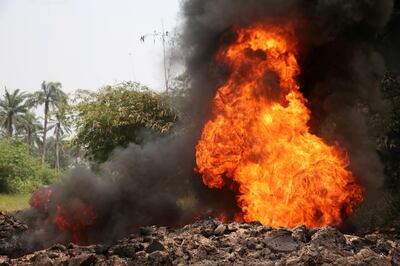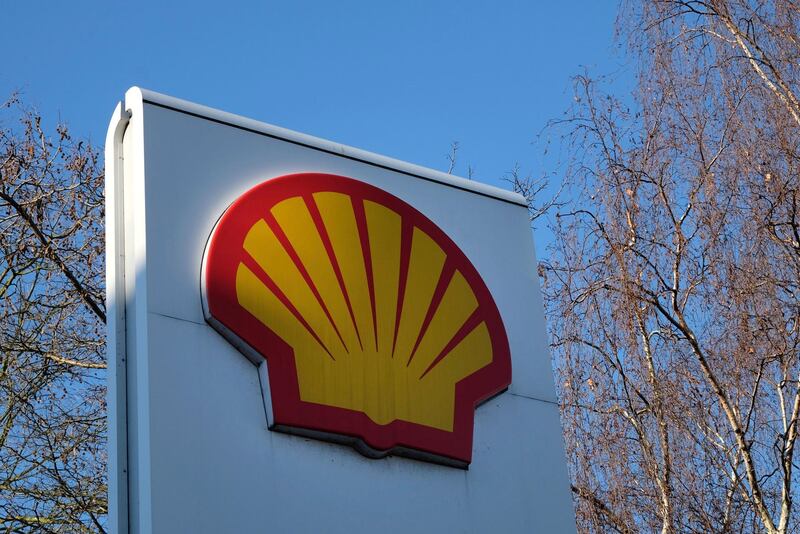The UK's highest court has given permission for a group of 42,500 Nigerian farmers and fishermen to sue Royal Dutch Shell following years of oil spills.
Senior judges at London's Supreme Court ruled on Friday that UK-based Shell, one of the world's biggest energy companies, can be sued over spills in the Niger Delta that contaminated land and groundwater.
The court ruled the firm had a common law duty of care, in the latest case to test whether multinationals can be held to account for the acts of overseas subsidiaries.
The ruling comes almost two years after a seminal ruling by the Supreme Court in a case involving mining company Vedanta.
The judgment allowed nearly 2,000 Zambian villagers to sue Vedanta in England for alleged pollution in Africa.

That move was seen as a victory for rural communities seeking to hold parent companies accountable for environmental disasters.
Vedanta settled out of court in January.
Nigeria's Ogale and Bille communities said their lives and health suffered because repeated oil spills contaminated the land, swamps, groundwater and waterways, and that there has been no adequate cleaning or remediation.
Represented by law firm Leigh Day, they argued that Shell owed them a duty of care because it had significant control of, or was responsible for, its subsidiary SPDC. Shell countered that the court had no jurisdiction to try the claims.
The ruling "represents a watershed moment in the accountability of multinational companies," Daniel Leader, a partner at Leigh Day, said.
"Increasingly, impoverished communities are seeking to hold powerful corporate actors to account and this judgment will significantly increase their ability to do so."
SPDC is the operator of oil pipelines in a joint venture between the Nigerian National Petroleum Corporation which holds a 55 per cent stake, Shell which holds 30 per cent, France's Total with 10 per cent, and Italy's Eni with 5 per cent.
Shell has blamed sabotage for the oil spills.
It said in its annual report published last March that SPDC, which produces around 1 million barrels of oil per day, suffered a 41 per cent surge in crude oil spills caused by theft or pipeline sabotage in 2019.
The ruling is the second loss for Shell this year regarding claims against its Nigerian operations.
In a landmark Dutch ruling two weeks ago, an appeals court held Shell responsible for multiple oil pipeline leaks in the Niger Delta and ordered it to pay unspecified damages to farmers, in a victory for environmentalists.







